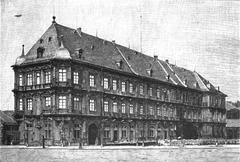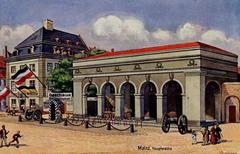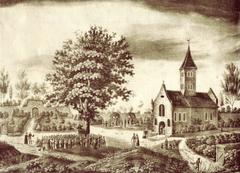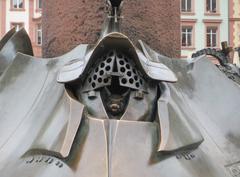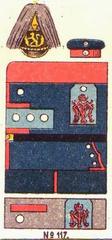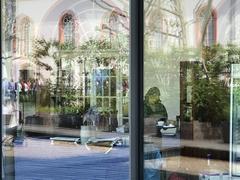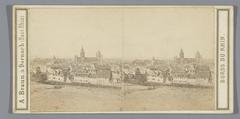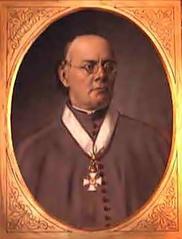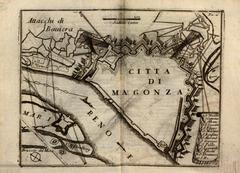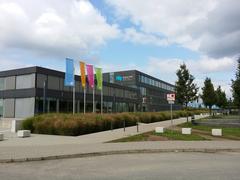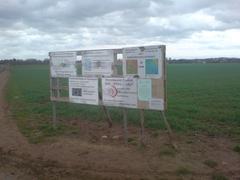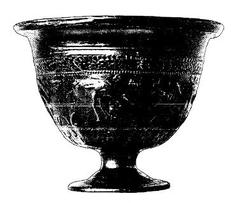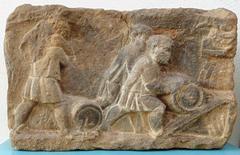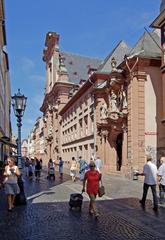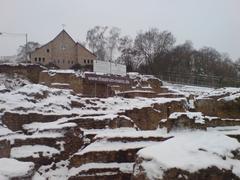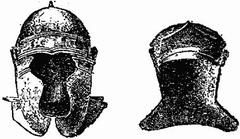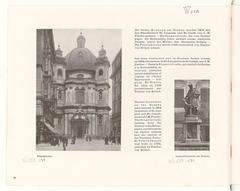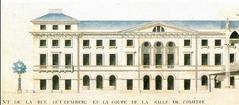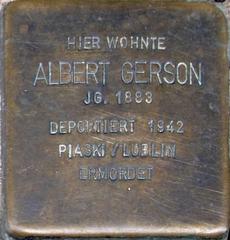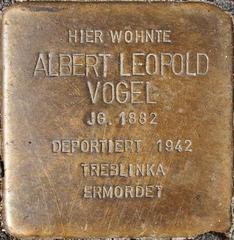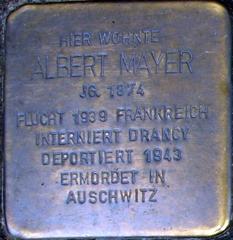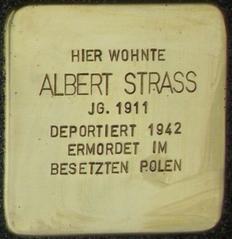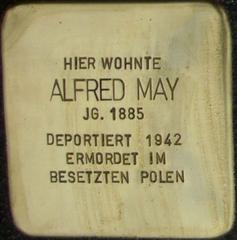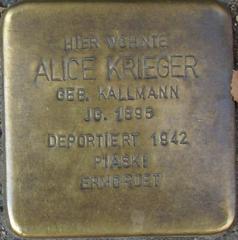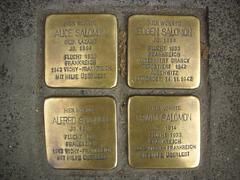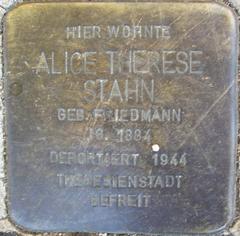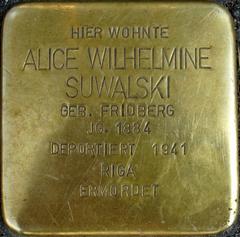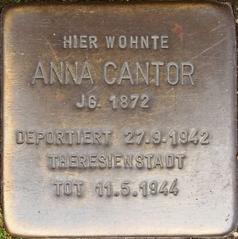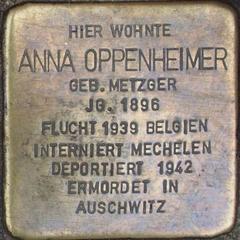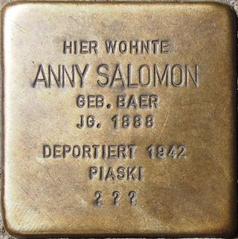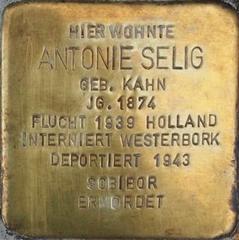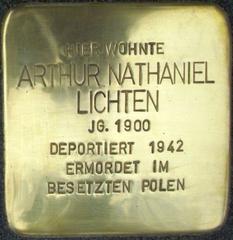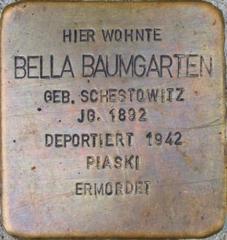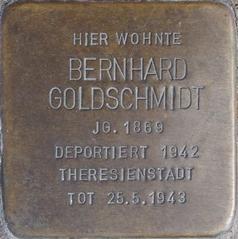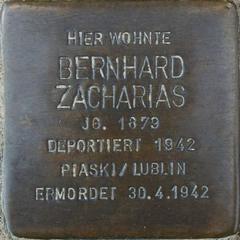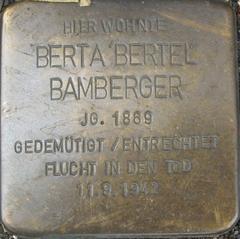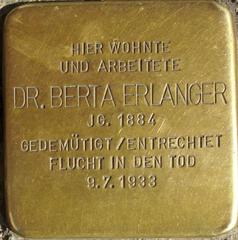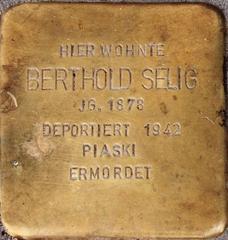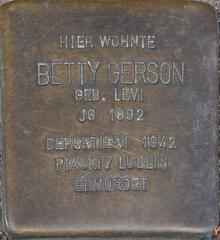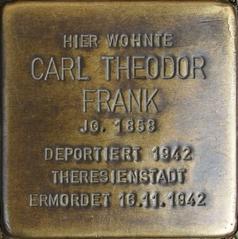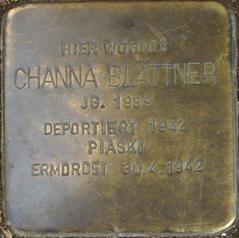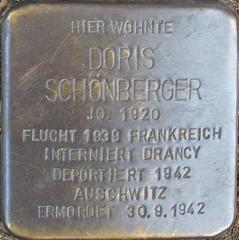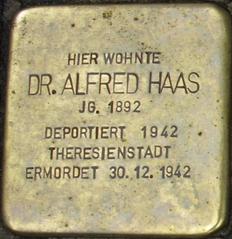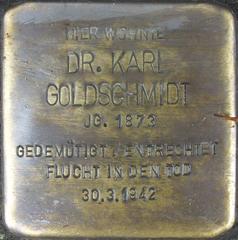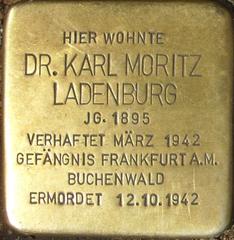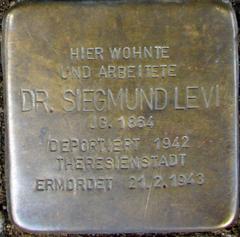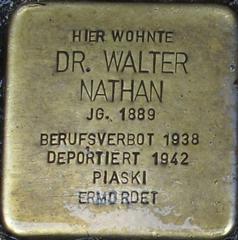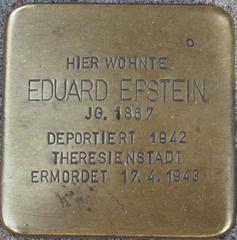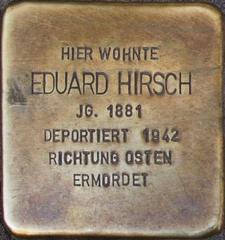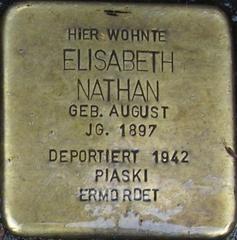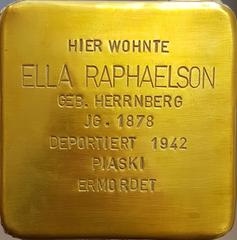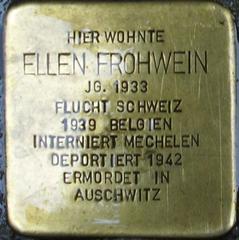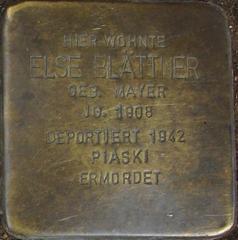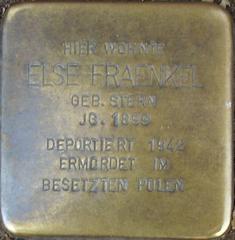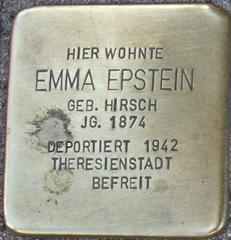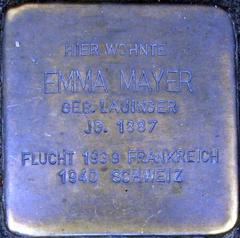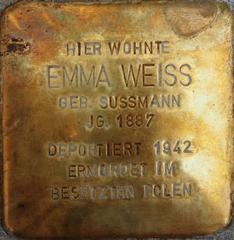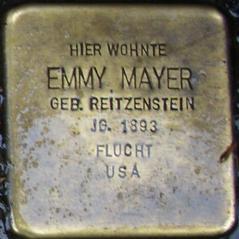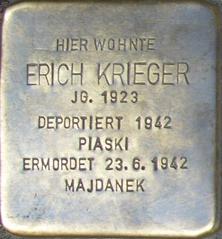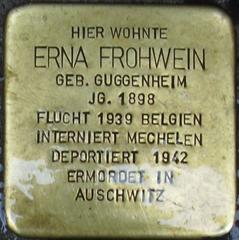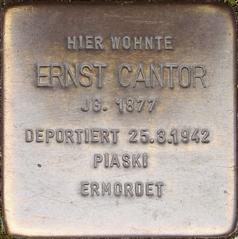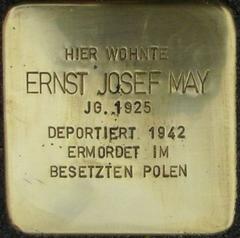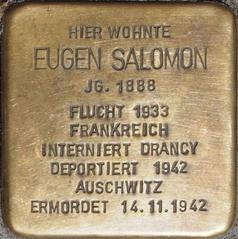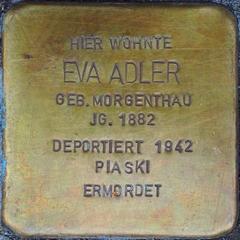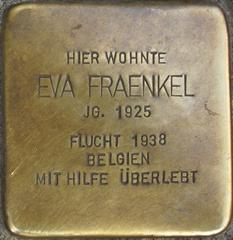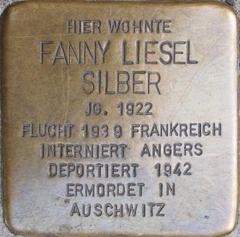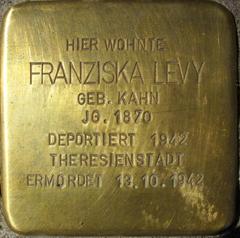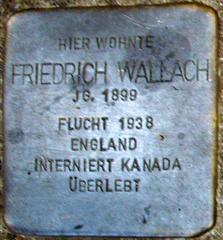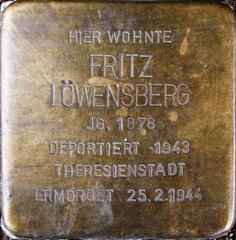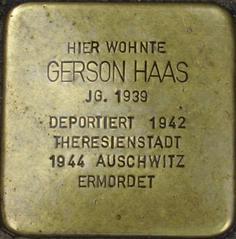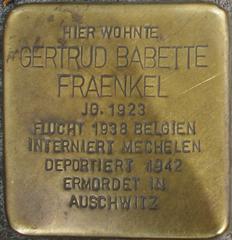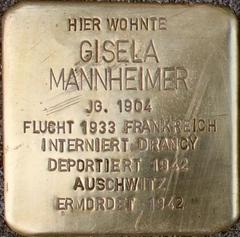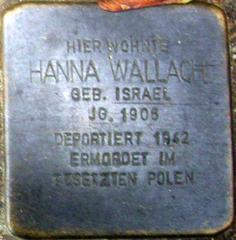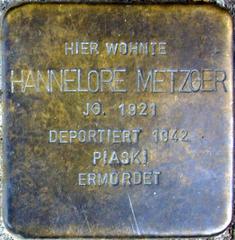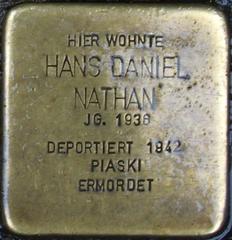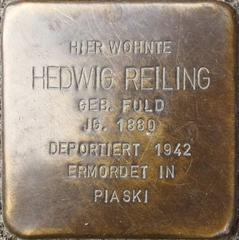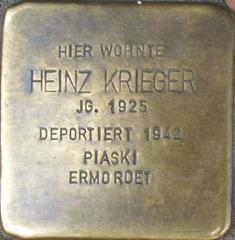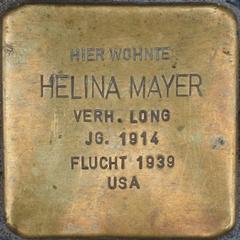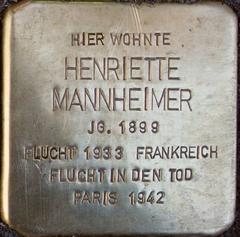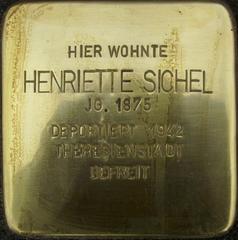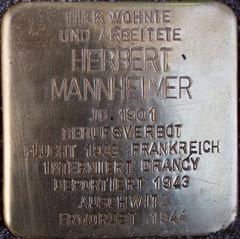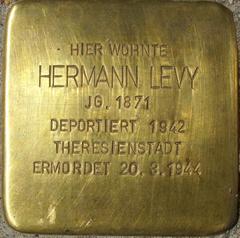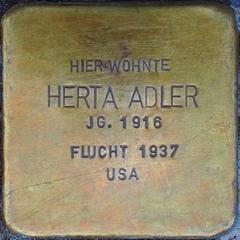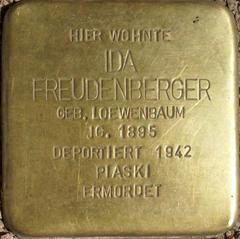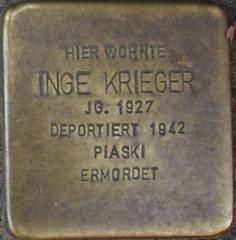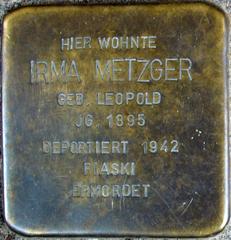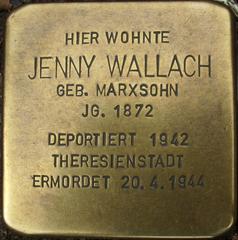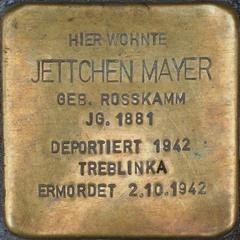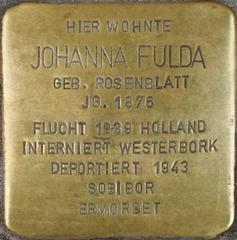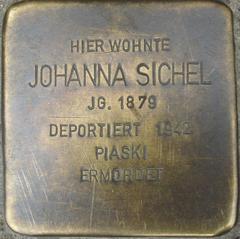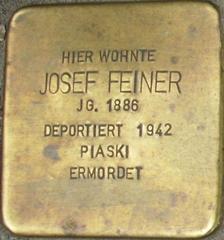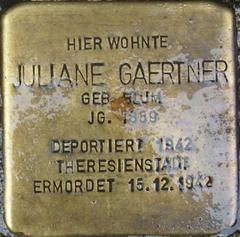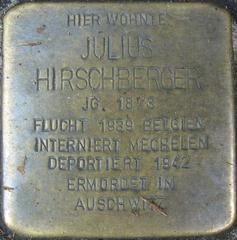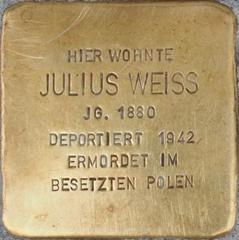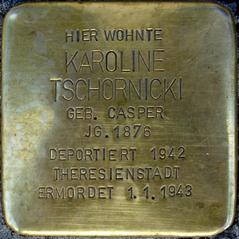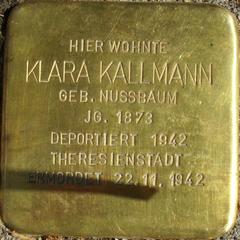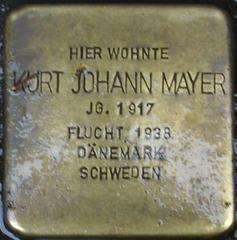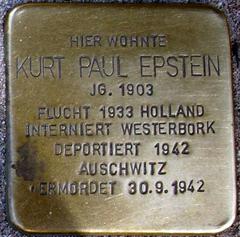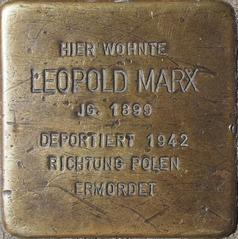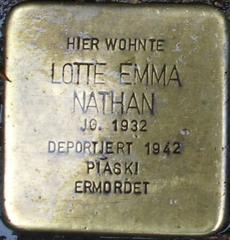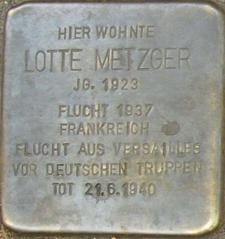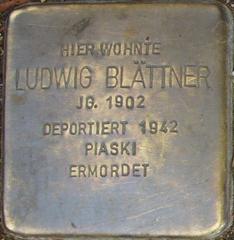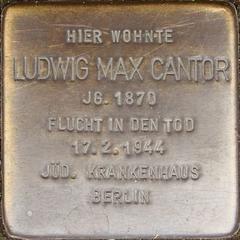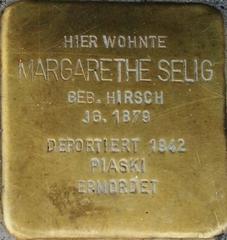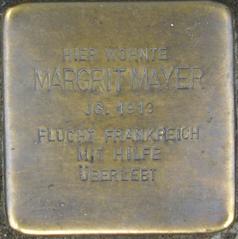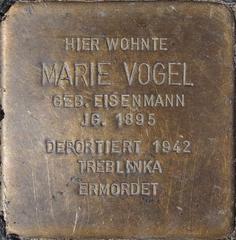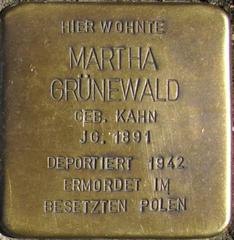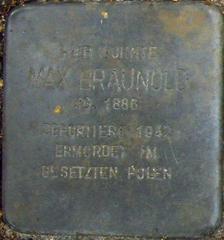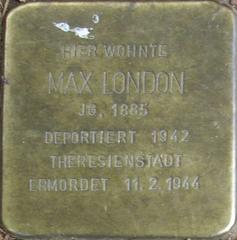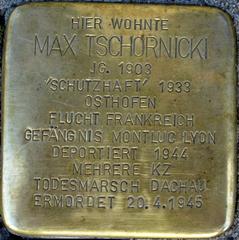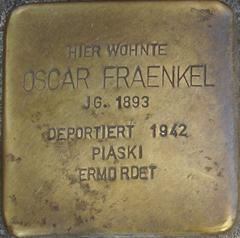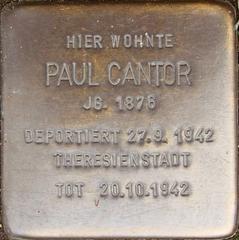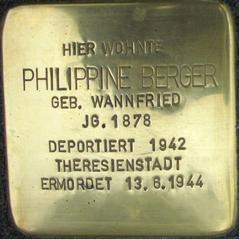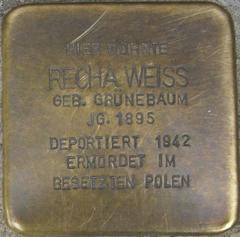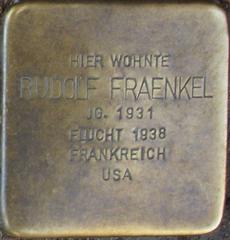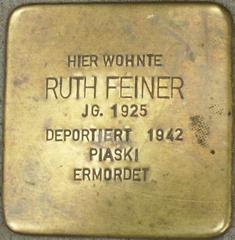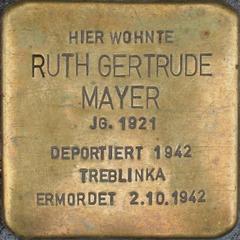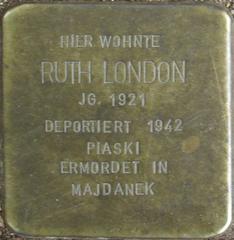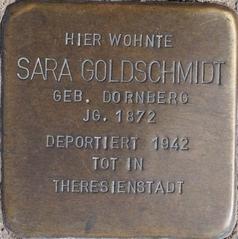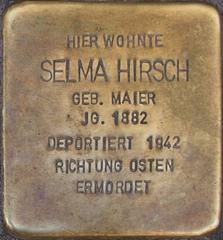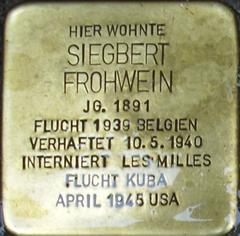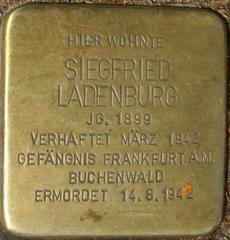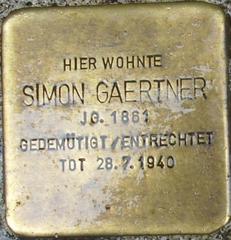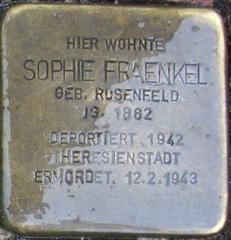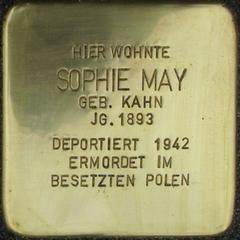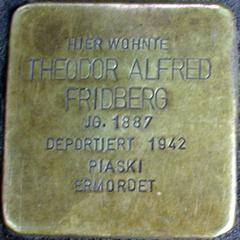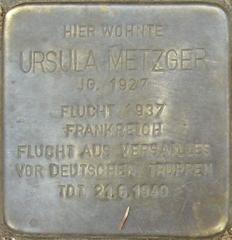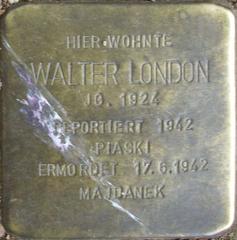Weisenauer Synagogue Visiting Hours, Tickets, and Historical Significance in Mainz, Germany
Date: 14/06/2025
Introduction
Mainz, once known as “Magenza,” is internationally recognized as a center of Jewish history and culture. As one of the medieval ShUM cities—alongside Worms and Speyer—Mainz played a foundational role in shaping Ashkenazi Jewish tradition, law, and scholarship. The Weisenauer Synagogue, situated in the Weisenau district, is the oldest surviving synagogue in the city and a rare architectural testament to the Jewish community’s endurance through centuries of upheaval, including the traumas of the Nazi era. This guide details the synagogue’s rich history, unique features, visitor information—including hours and ticketing—and its broader significance within Mainz’s Jewish heritage trail (Mainz Tourismus; schumstaedte.de; mainz.de).
Table of Contents
- Historical Context: Mainz as a Center of Jewish Life
- The Weisenauer Synagogue: Survival and Uniqueness
- Architectural and Ritual Features
- Role in the Jewish Community
- Nazi Era, Rediscovery, and Restoration
- Visitor Information: Hours, Tickets, and Access
- Nearby Attractions & Travel Tips
- Cultural Significance
- Frequently Asked Questions (FAQ)
- Visuals and Media
- Summary and Final Thoughts
- References
Historical Context: Mainz as a Center of Jewish Life
Mainz’s Jewish community flourished from the 10th century, becoming a major center for Jewish learning and culture. As part of the ShUM cities, Mainz influenced Jewish life across Europe, with its scholars and traditions shaping religious, legal, and cultural practices. The city’s Jewish population suffered catastrophic losses during the First Crusade in 1096, when over 1,000 Jews were killed or committed suicide to avoid forced conversion (regionalgeschichte.net). Despite these tragedies, the community endured, and its legacy remains visible in historic sites across Mainz.
The Weisenauer Synagogue: Survival and Uniqueness
Built in 1737/38, the Weisenauer Synagogue is the only synagogue in Mainz to have survived the destruction of the Nazi era and World War II (mainz.de). Its survival is largely due to its concealed location, set back from Wormser Straße and surrounded by residential buildings, which shielded it during the November Pogrom (Kristallnacht) of 1938. Unlike most synagogues in Germany, it was not set on fire, likely out of concern that flames could spread to neighboring homes (xn—frderverein-synagoge-mainz-weisenau-oqd.de).
Architectural and Ritual Features
The synagogue exemplifies the modest Baroque style common among rural Rhineland synagogues of the era. Notable features include:
- Simple Rectangular Structure: One-story with a gabled roof, reflecting the economic and social constraints faced by Jewish communities at the time.
- Interior Details: Restored wooden barrel vault painted with a starry sky, Hebrew inscriptions, the Bima (reader’s platform), Torah niche, and women’s gallery (xn—frderverein-synagoge-mainz-weisenau-oqd.de).
- Unique Dual Mikva’ot: Two ritual baths in the forecourt—one from the Baroque era and another from the 19th century—fed by a natural spring. This dual presence is unique in Germany and offers exceptional insight into Jewish religious practice across centuries (mainz.de).
Role in the Jewish Community
In the 18th and 19th centuries, Weisenau’s Jewish population was substantial, at one point comprising nearly a quarter of the district’s residents. The synagogue was the heart of religious and communal life. By 1810, 120 Jews lived in Weisenau; by 1925, only 30 remained, due to migration and demographic changes. The last religious service before the Holocaust was a wedding in July 1938 (xn—frderverein-synagoge-mainz-weisenau-oqd.de).
Nazi Era, Rediscovery, and Restoration
During Kristallnacht (1938), the synagogue was desecrated and looted but not destroyed. In 1939, the Jewish community was forced to sell the building, which was then used as a chicken coop and storage shed during and after the war. Neglected for decades, its significance was rediscovered in 1978. The city of Mainz acquired the site, and a dedicated association oversaw its careful restoration, culminating in a ceremonial reopening on May 27, 1996—900 years after the First Crusade massacre (xn—frderverein-synagoge-mainz-weisenau-oqd.de).
Visitor Information: Hours, Tickets, and Access
-
Location: Wormser Straße 31, 55130 Mainz-Weisenau (rheinhessen.de)
-
Getting There:
- By Public Transport: Accessible from Mainz Hauptbahnhof via local buses/trams. Nearest stops are within a short walk (Mainz public transport).
- By Car: Limited street parking; check for residential restrictions.
- On Foot/Bike: About a 40-minute walk from the city center.
-
Visiting Hours:
- The synagogue is open by prior arrangement only, typically through the support association. No regular walk-in hours are available.
- Open during special events, exhibitions, or commemorations. Check event calendars or contact the association for details.
-
Tickets & Admission:
- Entrance is free; donations are appreciated to support preservation.
- Guided tours (highly recommended) may have a fee, depending on the provider (mainz-tours.com).
-
Guided Tours:
- Available by advance booking through the support association or tourism office.
- English-language tours can be arranged with prior notice.
-
Accessibility:
- The historic building and narrow access path may limit accessibility for those with mobility impairments. Contact organizers in advance for arrangements.
-
Facilities:
- No on-site restrooms. Nearby amenities can be found in local cafes or public buildings.
- Photography is permitted only with permission.
Nearby Attractions & Travel Tips
- Mainz New Synagogue: Modern symbol of Jewish renewal, located on Synagogenplatz (travelsavvygal.com).
- Old Jewish Cemetery “Judensand”: Among Europe’s oldest Jewish cemeteries.
- Landesmuseum Mainz: Features Judaica, including Europe’s oldest legible Jewish tombstone.
- Stolpersteine: Brass plaques across Mainz commemorating Holocaust victims.
- Best Visiting Times: Spring and autumn are ideal for weather and cultural events.
Cultural Significance
The Weisenauer Synagogue stands as a monument to Jewish resilience and continuity in Mainz. Its survival and restoration symbolize the community’s endurance through adversity. Today, it functions as a site of remembrance and education, hosting exhibitions, guided tours, and interfaith events. Its inclusion in Mainz’s Jewish heritage trail makes it an essential stop for those seeking to understand the city’s multilayered history (Mainz Tourismus).
Frequently Asked Questions (FAQ)
Q: How can I visit the Weisenauer Synagogue?
A: Visits are by appointment only, organized through the support association or tourism office.
Q: Are there entrance fees or tickets?
A: Entrance is free; donations are encouraged. Guided tours may have a fee.
Q: Is the site accessible for those with disabilities?
A: Accessibility is limited. Contact organizers in advance to discuss your needs.
Q: Are English tours available?
A: Yes, by prior arrangement.
Q: What else can I see nearby?
A: Combine your visit with tours of the New Synagogue, Judensand cemetery, and Landesmuseum Mainz.
Visuals and Media

Alt text: Exterior view of the Weisenauer Synagogue in Mainz showcasing its Baroque architecture and historic facade.
Alt text: Map showing the location of the Weisenauer Synagogue in Mainz for visitor navigation.
For interactive maps and virtual tours, visit the Mainz tourism website.
Summary and Final Thoughts
The Weisenauer Synagogue encapsulates Mainz’s complex Jewish history, from vibrant medieval community, through persecution and destruction, to contemporary remembrance and education. Its rare dual mikva’ot, discreet architecture, and successful restoration make it a powerful symbol of survival and cultural continuity. Visitors are encouraged to book in advance, respect preservation guidelines, and explore the broader Jewish heritage trail for deeper engagement with Mainz’s past (Mainz Tourismus; mainz.de; schumstaedte.de).
References
- Mainz Tourismus: Synagoge Weisenau
- SchUM Cities: Jewish Mainz
- City of Mainz: Synagoge Weisenau
- Förderverein Synagoge Mainz-Weisenau: Geschichte
- Rheinhessen: A Synagogue in Weisenau
For visitor arrangements and the latest information, consult the Mainz tourism website and the city’s information portal.
